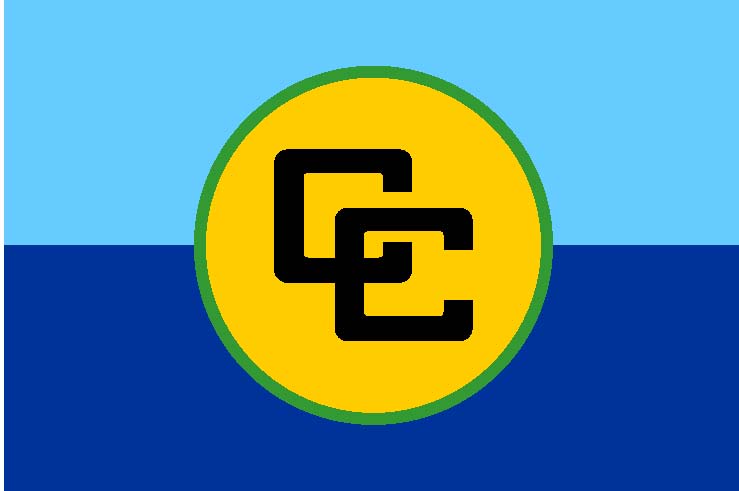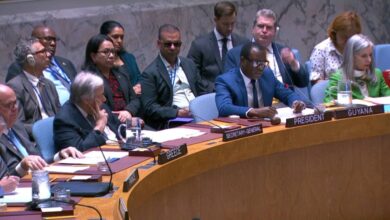(CARICOM Secretariat, Turkeyen, Greater Georgetown, Guyana) CARICOM Secretariat’s Programme Manager Sustainable Development, Ms Beverely Reynolds has made an impassioned plea for the Caribbean Countries and the European Union to strengthen the partnership in waging the war against the use of illicit drugs in the Caribbean Region, declaring that the Region’s sustainable development was seriously threatened by this social malady.
Speaking at the opening ceremony of the Meeting of the European Union and Latin American and Caribbean Countries in Montego Jamaica, earlier today, (5 March, 2009) Ms Reynolds stated that the problems and challenges associated with illegal drugs were not confined to any borders and as such, needed a global partnership and not just a national response.
She pointed to data that indicated that treatment for substance abusers worked effectively and served to assist in reducing the demand for illegal drugs, explaining further that those who accessed quality treatment make successful transitions through the rehabilitation period to lead socially acceptable lives. She added that it was important to highlight this fact since invariably the challenges confronting drug treatment practitioners and the social decay of the Region caused by illicit drugs very often belie the efforts invested in the work.
Relaying appreciation from the CARICOM Secretariat for the collaboration with the Inter-American Drug Abuse Control Commission (CICAD), in sharing best practices, Ms Reynolds held out hope that the two-day deliberations would forge stronger ties with EU partners but more importantly would define a tangible plan for moving forward in the drug treatment and rehabilitation services sector.
Also speaking at the ceremony were Their Worship the Mayors of Kingston and Montego Bay, Senator the Hon Desmond Mckenzie and Councillor Charles Sinclair Jr; Chairman of the National Council on Drug Abuse (NCDA) Jamaica, Dr Earl Wright and CICAD’s Head of Demand Reduction, Dr Anna Chisman.
All speakers agreed that drug abuse was breaking down family structures and consequently destroying the social fabric of society. Mayor McKenzie noted that ‘Drug Lords’ across Latin American and Caribbean cities were using their ill-gotten affluence to control and manipulate persons in some disadvantaged communities and law enforcers. This, he said, posed a dangerous threat to the socio-economic stability of Jamaica which is perceived as a trans-shipment point.
Dr Earl Wright noted that the social detonates from illicit drugs were wreaking havoc on the Jamaican economy, particularly on the health sector which he said, spends approximately two billion dollars annually on trauma related injuries, the majority of which is caused by drug abuse; Mayor Sinclair pledged Jamaica’s support to applying standards necessary to reducing the demand for illicit drugs and providing quality treatment facilities that would aid rehabilitated substance abusers in leading productive lives and Dr Chisman reiterated her call for credible information to develop evidence based policies, remarking that such policies were necessary in ensuring the provision of treatment that was accessible, available and affordable.
The Two-day EU-LAC Twin City meeting is convened to identify interventions at national levels for improving drug treatment services in participating European and CARICOM cities. The Opening Ceremony was chaired by Mr Michael Tucker, Executive Director, NCDA, Jamaica, who noted that the overall thrust of the meeting was to ensure the sharing of best practices to assist in better client service decision, thus ensuring that substance abusers go through rehabilitation successfully and sustain productive lives. The meeting is convened immediately after the first regional training workshop on Standards of Care for Treatment and Rehabilitation Facilities for Substance Abusers, organised jointly by the CARICOM Secretariat and CICAD to develop standards of care for drug treatment.





